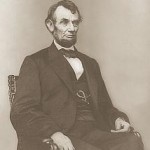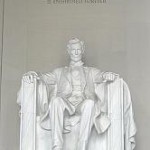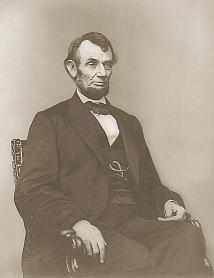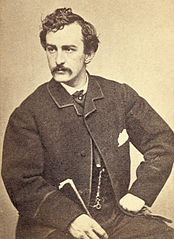President Abraham Lincoln Died On April 15, 1865 At 7:22 In The Morning
Upon Abraham Lincoln’s death, it was reported Secretary of War Edwin Stanton said:
Abraham Lincoln’s assassination was a tragedy and the nation was in mourning. Lincoln’s funeral train traveled its way on a sad thirteen-day long journey to Springfield, Illinois. Thousands and thousands of people came to pay their respects to the fallen president as the Lincoln Special train passed through their cities, towns, and small villages.“Now he belongs to the ages.”
“Marched at half past five. The news came today that President Lincoln, Secretary Seward and son have been assassinated, resulting in the President’s death and severely wounding the others. And now, while the nation is rejoicing with unspeakable joy at its deliverance, it is suddenly plunged into the deepest sorrow by the most brutal murder of its beloved chief.”
…The April 21, 1865 words of Union Sergeant Lucius Barber.
Mourning for the death of President Abraham Lincoln was not universal. Some in the defeated South were joyous over the news of Lincoln’s death… it had been a long, hard, bitter, and bloody war. Others in the South realized they had lost a friend on their path to reconstruction and healing after the war.
Lincoln’s death was not good news for the people of the South. Some leaders coming to power after Lincoln’s death would not have Lincoln’s conciliatory ideas for the South.
The Lincoln Memorial
Almost immediately after his assassination discussion begins for a memorial of some type for President Abraham Lincoln. The Lincoln Memorial in Washington, D.C. was dedicated in 1922. The Lincoln memorial has 36 columns to signify the number of states that were in the Union during Abraham Lincoln’s presidency. Carved into the marble of the south wall of the memorial is Lincoln’s Gettysburg Address.
The Lincoln Memorial faces toward Confederate General Robert E. Lee’s former home of Arlington House located across the Potomac River.


